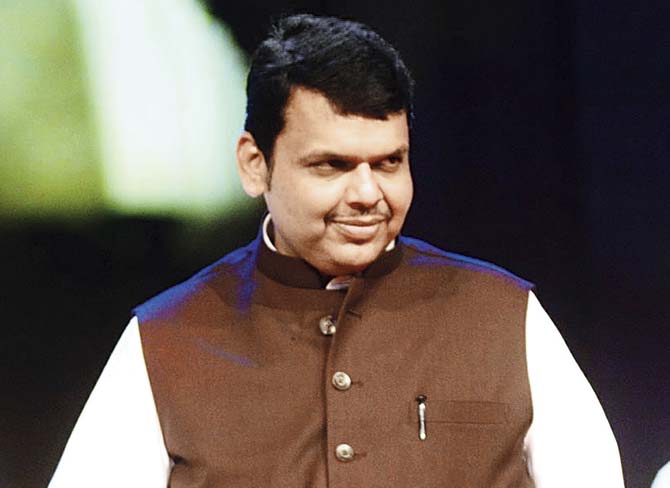The dispute between Reliance Infra- led Mumbai Metro One and the state is set to intensify with Maharashtra Chief Minister Devendra Fadnavis saying his administration will challenge the proposal to increase fares up to Rs 110 for the 11.4-km metro service, in the Supreme Court
The dispute between Reliance Infra- led Mumbai Metro One and the state is set to intensify with Maharashtra Chief Minister Devendra Fadnavis saying his administration will challenge the proposal to increase fares up to Rs 110 for the 11.4-km metro service, in the Supreme Court.
ADVERTISEMENT
The FFC (Fare Fixation Committee) has recommended a tariff structure of Rs 10-110 for the Versova-Andheri-Ghatkopar Metro, which is an over threefold increase over the present fare of Rs 10-40.

Chief Minister Devendra Fadnavis
"The FFC recommendations have not yet reached me. But if this is the fact it is totally unacceptable. We will challenge it in the Supreme Court. If any such decision is taken before the special CAG audit is conducted, it will not be in the best interest of commuters," Fadnavis told PTI.
The project, which is a public private partnership (PPP) model, has been embroiled in controversy over fare fixation as the Mumbai Metropolitan Region Development Authority (MMRDA) insisted on Rs 9-13 fare as per the concession agreement, while the operator fixed the rates at Rs 10-40 as per the Metro Act.
The MMRDA later challenged the fares that MMOPL fixed in the Bombay High Court and then in the Supreme Court, which set a deadline for the FFC to come up with its recommendations.
However, the state government has decided to challenge the FFC recommendation in the Supreme Court.
When contacted, a spokesperson of the Anil Ambani Group- run MMOPL, however, said they are examining the FFC report submitted on July 8, and will work towards a phased implementation of the new fare recommendations.
"We will go in for a gradual fare increases together with the mitigating impact of potential real estate development and subsidy from the state, and keeping in mind at all times the overall interest of the commuters," the company said in a statement.
According to an expert involved in the process of determining the tariff, the decision was taken on the principles of sustainability and affordability.
"The fares were arrived at on the basis of sustainability of the project for the operator and at the same time it should be affordable to commuters. Since safety cannot be compromised and at the same time the operator should not be perpetually in loss, therefore the proposal to steeply increase the fares," the expert, who wished not to be identified, said.
He said sustainability depends on the cost of construction, which is different for private or PPP projects as the capital cost is higher in a such model compared to EPC model where the risk is borne by the government. For PPP, the loan has to be raised from the market.
As per Metro Act, it's binding on MMOPL to implement the new fares.
"However, when to implement it is up to the operator. Besides, if the government wants, it can intervene by providing subsidy. But these fares will be binding on MMOPL to implement as per the Act," the expert said.
 Subscribe today by clicking the link and stay updated with the latest news!" Click here!
Subscribe today by clicking the link and stay updated with the latest news!" Click here!






